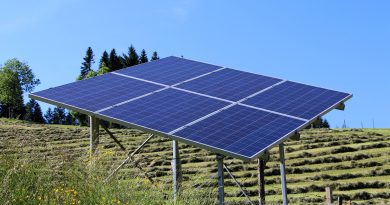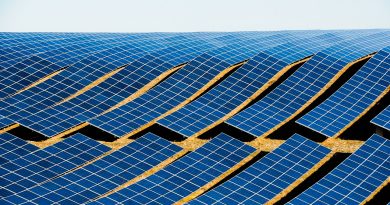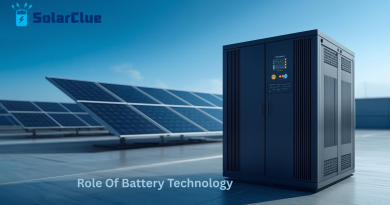Are Solar Panels Loud?
One common misconception about solar panels is that they are noisy and disruptive. This myth often leads to unnecessary concerns for homeowners and businesses considering solar energy. In reality, solar panels themselves operate silently, with no moving parts to generate noise. In this blog post, we will explore the silent operation of solar panels, discuss potential noise sources within a solar panel system, and provide tips on how to mitigate any potential noise disturbances.
Table of Contents
- 1 The Silent Operation of Solar Panels
- 2 Noise Sources in Solar Panel Systems
- 3 Factors Affecting Noise Levels
- 4 Minimizing Noise from Solar Panel Systems
- 5 Comparing Solar Panels to Other Energy Sources in Terms of Noise
- 6 Addressing Concerns About Noise Pollution from Solar Installations
- 7 The Impact of Solar Panel Size and Location on Noise Levels
- 8 The Future of Silent Solar Technology
- 9 Noise Levels of Various Energy Sources
- 10 Conclusion
- 11 FAQ Section
The Silent Operation of Solar Panels
How Solar Panels Work
- Photovoltaic Cells: Solar panels are made up of photovoltaic (PV) cells that convert sunlight into electricity. This process involves the movement of electrons within the cells, but it is entirely silent as it does not require any moving parts.
- No Mechanical Components: Unlike wind turbines or fossil fuel-based power generators, solar panels do not have any mechanical components that could produce noise. This makes solar energy one of the quietest forms of electricity generation.
Common Misconception
- Noise Concerns: Some people mistakenly believe that solar panels create noise because they associate energy production with mechanical movement or vibration. However, this is not the case with solar panels.
Noise Sources in Solar Panel Systems
1. Inverters
- Function: Inverters convert the direct current (DC) electricity generated by solar panels into alternating current (AC) electricity, which is used by most household appliances.
- Potential Noise: Inverters can produce a low-level hum or buzzing sound, particularly when operating at high capacity. This noise is generally minimal and often comparable to the sound of a refrigerator.
2. Cooling Fans
- Purpose: Some inverters and battery storage systems include cooling fans to regulate temperature and prevent overheating.
- Noise Level: The noise from these fans is typically quiet and only noticeable when the system is under heavy load or in hot weather conditions.
3. Tracking Systems
- What They Are: Solar tracking systems, which adjust the angle of solar panels to follow the sun, can produce some mechanical noise as they move throughout the day.
- Prevalence: However, tracking systems are generally used in large-scale solar farms rather than residential installations, so they are not a common source of noise for most homeowners.
Factors Affecting Noise Levels
1. System Size and Capacity
- Larger Systems: Larger solar systems with higher capacity inverters may produce slightly more noise, especially during peak operation.
- Residential vs. Commercial: Residential systems are typically smaller and quieter compared to commercial or industrial solar installations.
2. Location of Installation
- Proximity to Living Areas: The closer the inverter is to living spaces, the more noticeable any noise might be. However, proper installation can minimize any potential disturbances.
- Outdoor vs. Indoor: Installing the inverter outdoors or in a well-ventilated area can help reduce noise within the home.
3. Weather Conditions
- Temperature: Inverters and cooling fans may become slightly noisier in hot weather as they work harder to cool the system.
- Wind and Environment: Background noise from wind or nearby environmental factors can either mask or amplify the perceived noise from a solar system.
Minimizing Noise from Solar Panel Systems
1. Proper Installation
- Location of Inverter: Placing the inverter in a garage, basement, or outside on a sturdy wall away from living spaces can significantly reduce any audible noise.
- Mounting Solutions: Using vibration-dampening mounts can help minimize any humming or buzzing sounds from the inverter.
2. Regular Maintenance
- Fan Maintenance: Keeping the inverter’s cooling fan clean and unobstructed helps ensure it operates efficiently and quietly.
- System Checks: Regular inspections by a qualified technician can help identify and address any unusual noises before they become a concern.
3. Upgrading Equipment
- Inverter Replacement: Newer inverter models are often quieter and more efficient. Upgrading to a high-quality inverter can reduce noise levels.
- Smart Inverters: Some smart inverters come with built-in noise reduction features, further minimizing any potential disturbances.
Comparing Solar Panels to Other Energy Sources in Terms of Noise
1. Wind Energy
- Wind Turbines: Wind turbines generate significant noise from their rotating blades and mechanical components, making them much louder than solar panels.
- Noise Pollution: Wind turbines can be a source of noise pollution, particularly in residential areas or near farms.
2. Fossil Fuel Generators
- Combustion Engines: Fossil fuel generators produce noise from combustion engines, which can be disruptive, especially in quiet environments.
- Air and Noise Pollution: In addition to noise, fossil fuel generators contribute to air pollution, making them less desirable compared to silent solar panels.
3. Hydroelectric Power
- Dam Operations: Hydroelectric power plants generate noise from water movement, turbines, and associated machinery. While often located away from residential areas, they can still impact nearby wildlife.
Addressing Concerns About Noise Pollution from Solar Installations
1. Reassuring Homeowners
- Noise Level Comparison: The noise from a solar panel system is typically negligible and is often drowned out by everyday household sounds.
- Inverter Placement: By strategically placing inverters and other equipment, any potential noise can be effectively managed.
2. Community Installations
- Large-Scale Projects: For community or large-scale solar installations, proper planning and consultation with local residents can address any concerns about noise.
- Compliance with Regulations: Ensuring that installations meet local noise ordinances and regulations helps prevent any issues with noise pollution.
The Impact of Solar Panel Size and Location on Noise Levels
1. Panel Size
- No Direct Impact: The size of the solar panels themselves does not impact noise levels, as the panels are silent. However, larger systems may require more inverters, potentially increasing overall noise.
2. Location
- Urban vs. Rural: In urban areas, ambient noise levels may mask any sound from the solar system, while in quieter rural areas, the sound may be more noticeable.
- Proximity to Neighbors: In densely populated areas, careful consideration of equipment placement can help minimize any potential noise impact on neighbors.
The Future of Silent Solar Technology
1. Advancements in Inverter Technology
- Quieter Inverters: Ongoing advancements in inverter technology are leading to quieter operation, with some models specifically designed for noise-sensitive environments.
- Solid-State Inverters: Emerging solid-state inverters, which have no moving parts, promise to further reduce noise levels in solar installations.
2. Improved System Design
- Integrated Systems: Future solar systems may integrate inverters and other components into a single, compact unit, reducing both noise and space requirements.
- Smart Monitoring: Advanced monitoring systems can detect and address potential noise issues before they become problematic.
3. Growing Adoption in Noise-Sensitive Areas
- Hospitals and Schools: The quiet operation of solar panels makes them ideal for noise-sensitive environments like hospitals and schools, where maintaining a peaceful atmosphere is important.
- Residential Areas: As more homeowners adopt solar energy, the demand for silent, efficient systems will continue to drive innovation in noise reduction.
Noise Levels of Various Energy Sources
| Energy Source | Noise Level | Typical Noise Sources | Potential Impact |
|---|---|---|---|
| Solar Panels | 0-30 dB (silent to quiet) | Inverter hum, cooling fans | Minimal, often unnoticed |
| Wind Turbines | 50-60 dB (moderate) | Rotating blades, mechanical noise | Can be disruptive in residential areas |
| Fossil Fuel Generators | 60-100 dB (loud) | Combustion engines | Significant, especially in quiet environments |
| Hydroelectric Power Plants | 40-80 dB (varies) | Water movement, turbines | Varies by location, can impact wildlife |
Conclusion
Solar panels are an exceptionally quiet and efficient way to generate electricity, with the panels themselves producing no noise. While inverters and cooling fans may generate minimal noise, this can be easily managed with proper installation and maintenance. Compared to other energy sources, solar panels are far less likely to contribute to noise pollution, making them an ideal choice for both urban and rural settings. As technology advances, solar panel systems are expected to become even quieter, ensuring that they remain a sustainable and peaceful solution for clean energy.
FAQ Section
1. Do solar panels themselves make any noise?
No, solar panels are completely silent as they have no moving parts. The process of converting sunlight into electricity involves no mechanical movement or vibration.
2. What part of a solar panel system might make noise?
The inverter, which converts DC electricity to AC, can produce a low hum or buzzing sound. Additionally, cooling fans in the inverter or battery systems may produce some noise during operation.
3. How can I minimize noise from my solar panel system?
Proper placement of the inverter, regular maintenance, and choosing a high-quality, low-noise inverter can help minimize any noise. Installing the inverter away from living spaces or using sound-dampening mounts can also reduce noise levels.
4. Is the noise from a solar panel system disruptive?
For most residential installations, the noise is minimal and often unnoticed. It is generally quieter than common household appliances like refrigerators or air conditioners.
5. How does solar panel noise compare to other energy sources?
Solar panels are one of the quietest energy sources. They are significantly quieter than wind turbines, fossil fuel generators, and hydroelectric power plants, making them ideal for residential areas and noise-sensitive environments.



